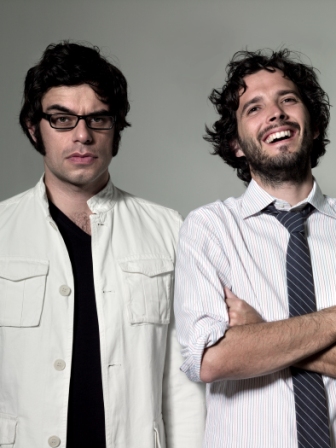Aweek in Seattle, my first, had left me mildly rain-soaked and wistful for old friends. You’d think my bookworm heart would take comfort in having moved to the country’s most literate city (two years running! according to a survey by Central Connecticut State University!), yet my foray into Seattle’s literary scene began hesitantly. My friend, an English major/ poet/ singer/ songwriter and Seattleite for nearly four years, had never been to the Richard Hugo House. And the photos on the Web site said less “inspiring literary salon” and more “community center for those whose employment and talent both rank as ‘marginal.”’
But awaiting us at “How I Learned to Stop Worrying and Love Rhyme: A Roundtable Discussion and Reading of Formal Poetry” was a crowded house, one too crowded for us to find a propertable, forcing us to make a beeline for wine. Even a blueish-velvet-suit-jacket-clad Sherman Alexie was astonished at the turnout—a motley group, friendly and boisterous with booze.
“I hadn’t been out for poetry in a long time,” he said. “I thought it’d be four guys in berets and three smoking women. Those are onstage….”
The towering and hilarious Eric McHenry, aSeattle poet and an editor for the University of Washington’s alumni magazine, Columns, admitted that formal poetry is “infectious when it’s done well. When it’s done poorly, it’s probably the worst thing on the planet.” He then recited an unexpectedly hilarious work about Miami Vice‘s Philip Michael Thomas.
Atlanta-based Chelsea Rathburn, lipsticked and donning a navy spaghetti-strap tank top, divulged her love of the triolet, a form of French poetry requiring, of its eight lines, a mere original five. “It’s the perfect form for poems about marital discord, because it’s the ultimate repetition. You end up saying the same things over again.”
Richard Wakefield—a Seattle Times critic who, it should be noted, looks just like Christopher Walken—read poems about farms and male menopause. (The fiftysomething former farm worker claimed neither was autobiographical.)
Sherman Alexie (doubling as MC and the fourth reader) charmed even when reading “Avian Nights,” a sad and fierce chronicle of the time he and his wife had three birds killed by an exterminator. When he called novelist and critic Joanna Scott “that MacArthur wench,” he elicited whistles of disbelief.
After one woman asked about the particular emotional resonance of formal poetry, McHenry was quick to illustrate its charms by reciting Tony Harrison’s “The School of Eloquence.” While the meter, rhyme, and structure of formal poetry seem hopelessly passé, it’s the perfect form for performance, be it hip-hop lyrics, Shakespearean drama, or a night at Hugo House. Because of rhythm and rhyme, “I know so many lyrics,” Alexie said. He then sang a bit of Joy Division’s “Love Will Tear Us Apart.”
Alexie’s relationship with formal poetry is still young, yet his and McHenry’s self-effacing humor, talent, and interaction with the audience inspired conversation, not sleep. Invigorated and wondering why she hadn’t been to Hugo House before, my friend revealed her newfound awe of Eric McHenry.
“I’m pretty sure I’m in love with him,” she said as we exited, her face flush with red wine. After all, how many men could so effortlessly recite Larkin and a poem about the man who brought Tubbs to life? And, more importantly: How many other cities would be able to appreciate men like that?
Karla Starr







